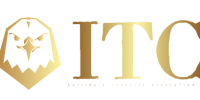A blog for boards is a great method to inform users about the technology and its benefits, as well as security protocols. While the first-time users of portals may be focused on the cost and features as a whole, this is not where the evaluation should end. Organisations should instead ask providers about infrastructure as well as external audits and data integrity, as well as their security teams.
In a world where board management software is becoming more and more popular, it’s vital to know the most important questions to ask to get the most out of this technology. By asking these questions to a potential provider of board portals will help you determine if the platform is right for your company, and if it will offer a secure and efficient environment for meetings.
A fully-fledged website for the board will make it simple for company secretaries and directors to create and distribute agendas and packs. It should also allow directors to read, comment and annotate documents on any device, and also provide report writers with templates and guidelines to write better reports. This will help save time and money that can then be spent on areas where it is most needed.
A board portal should include various security features that protect sensitive information and documents. These should include encryption in transit and in the rest of the document and granular control over authentication and permission settings remote wipe, business continuity and disaster recovery plans, and regular penetration testing with third-party vendors and security audits.

